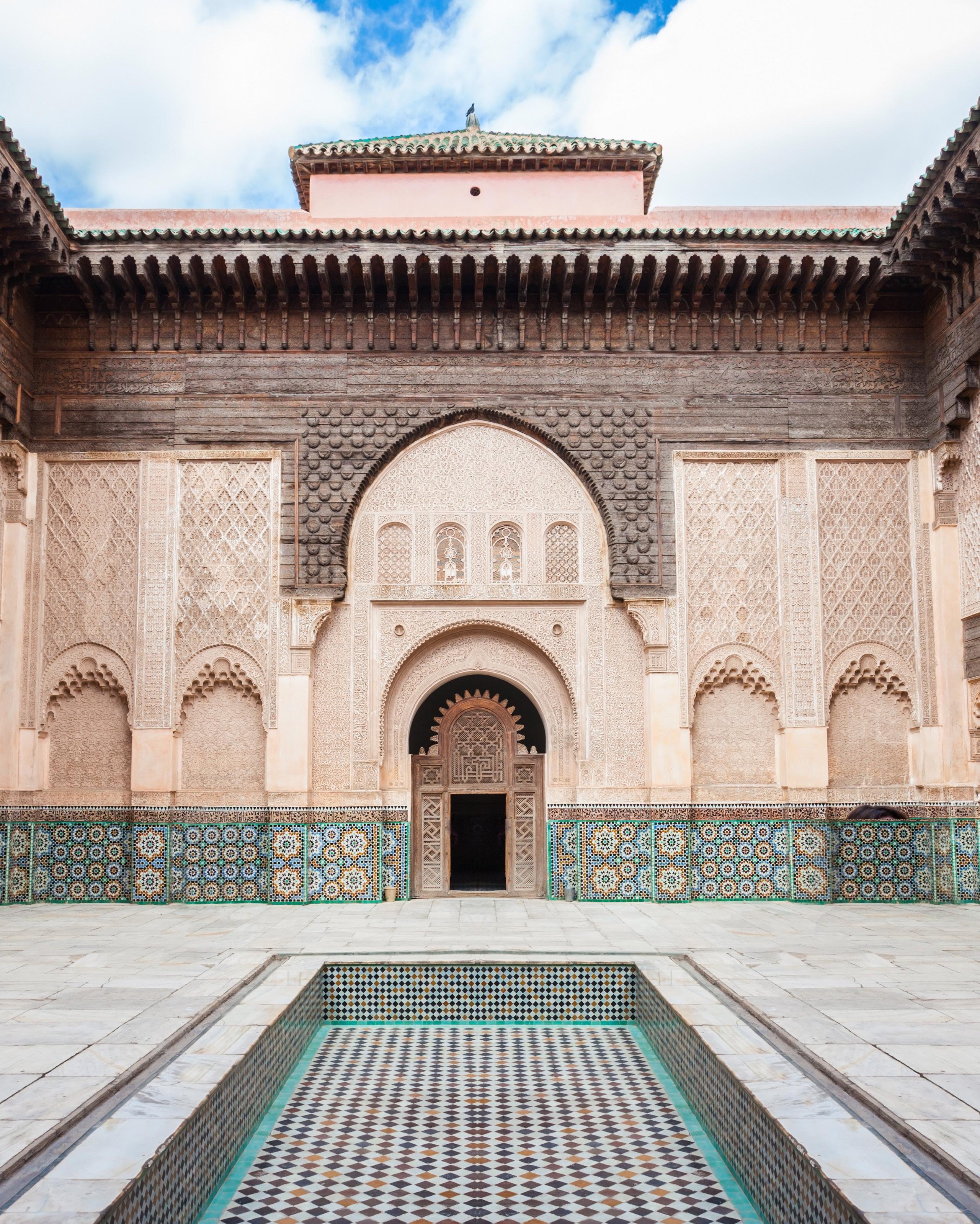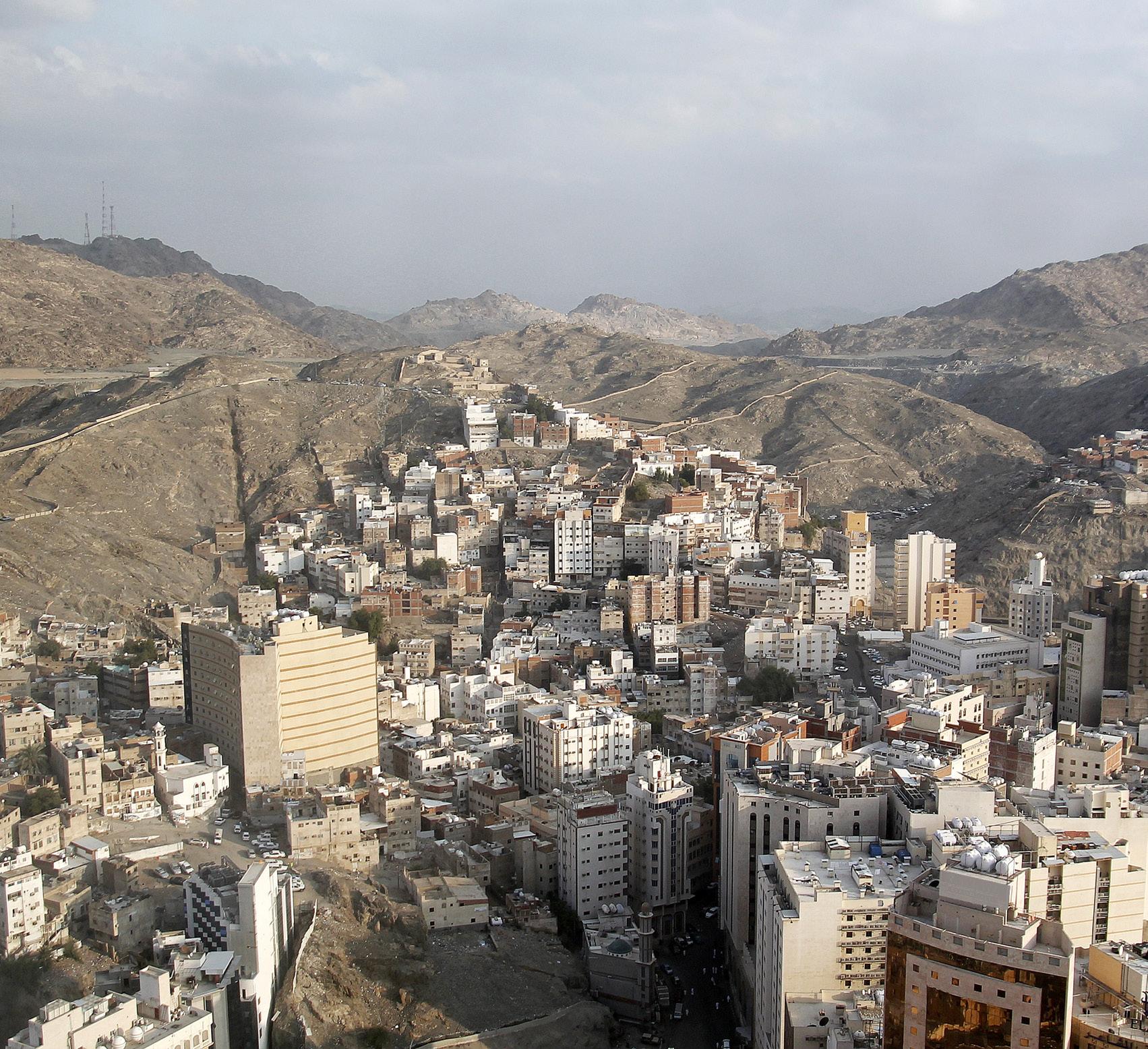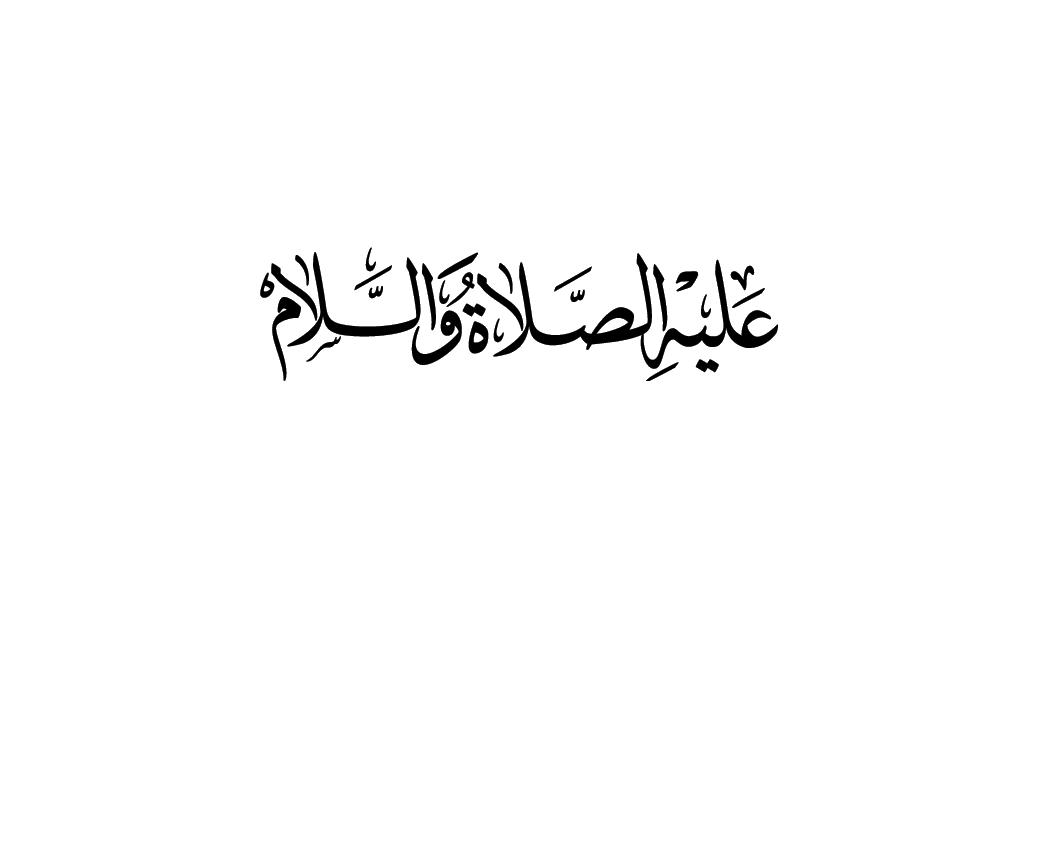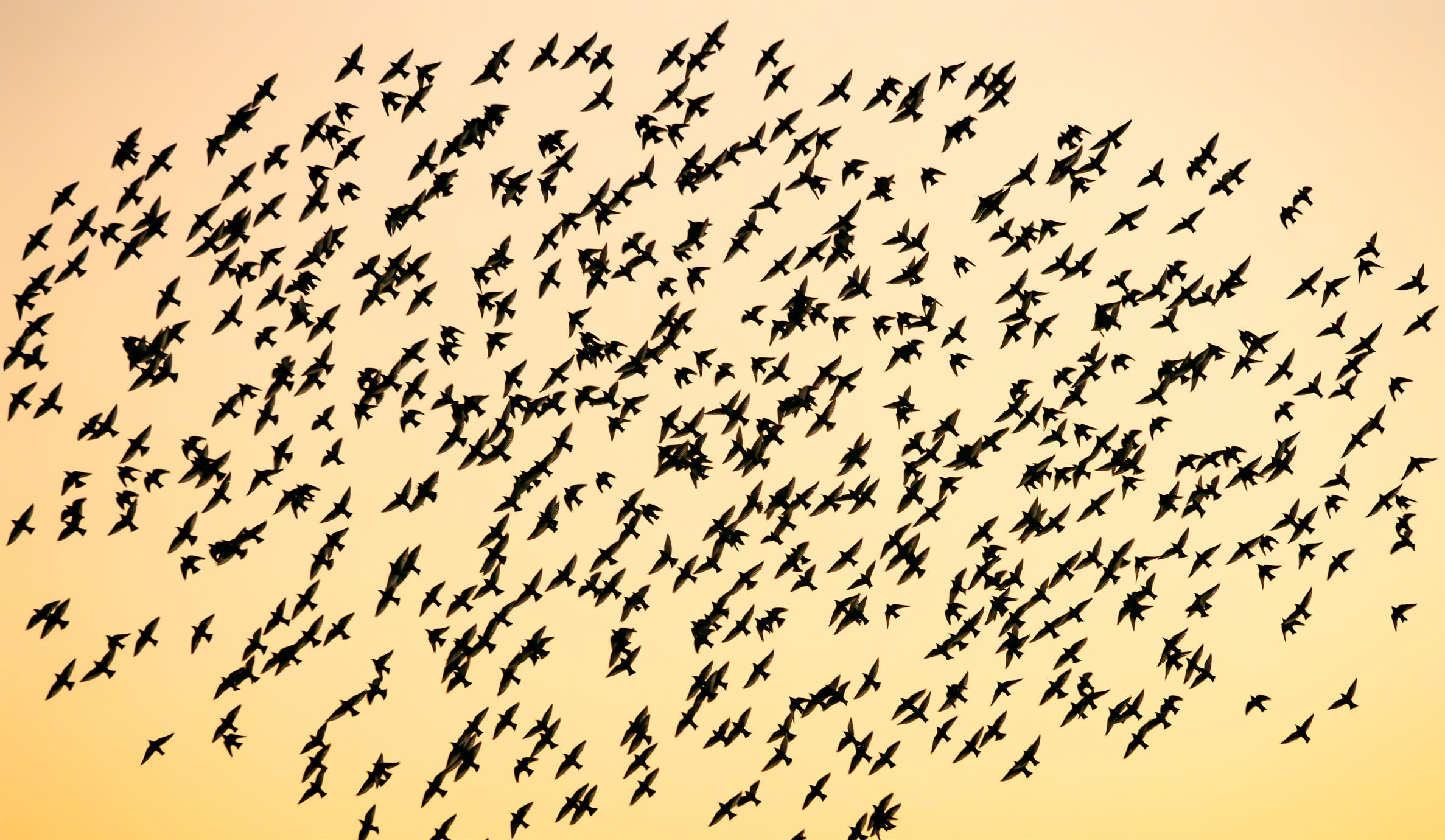
The Prelude Our Obsession with the Language and Meaning of Quran
G
Seerah
Is Shellac Halal? Official Magazine of Darul Uloom CANADA INSI
HT
The Bin Yusuf Madrasa was founded in Marrakesh, Morocco by Sultan Ali bin Yusuf (1106-1142) and was the largest madrasa at its height. It is named after the Bin Yusuf masjid adjacent to it. It now functions as a historical site.



2 INSIGHT MAGAZINE Insight Magazine Patron Hazrat Dr. Ismail Memon Fatawa Mufti Hussain Memon Badri Contributors Mufti Omar Baig Maulana Dr. Mateen Khan Abu Saalem Editor Asim Ahmad Phone 5193601028 E-mail office@ducanada.org Website www.ducanada.ad-din.site Address 51 Prince St. N, Chatham, ON N7M 4J7, Canada The views expressed in the columns of Al-Madinah magazine do not necessarily represent those of Darul Uloom Chatham. The articles published in this magazine may be reproduced with due acknowledgment. Prophesy: skyscrapers and the Arab nation Fatawa: Is Shellac halal? Glycerin? by Mufti Hussayn Badri Learn Arabic: Anatomy of the back 24 18 Prelude:
the
of the Prophet s by
Dr. Mateen Khan 16 Our obsession with the language and meaning of the Quran by Abu Saalem 12 Pearls of wisdom 6 5 SUMMARY 12 18 6 Cover
Before
advent
Maulana
He is the One who subjugated the sea, so that so you may eat fresh meat from it, and may take out from it ornaments you wear... (16:14)


3 INSIGHT MAGAZINE
Insight is to have clarity in matters. Having insight into ourselves means that we know who we really are and why we are in this world. We know that we are wrong though we justify it with seemingly strong excuses, and when something is right but we purposely ignore it because to recognize it would mean to stand up to the powerful currents of modern society. And that would be too hard to bear.
With insight, we can see through our own self-deceptions and when we are losing ourselves to the bling and pressure that is put on by our friends, and sometimes even family.
The articles in this newly-launched magazine are curated to help increase our insight and to prevent against the nefarious doubts and pressures that cloud clarity of thought. Remember, Insight is subscription free and digital so you can you read it wherever you may happen to be. And, your suggestions are always welcome. May Allah protect us all.

EDITORIAL
The kalam (word) of Allah is the most complete because His knowledge encompasses all things; He is also the Owner of all things and the sole Cause behind everything. He is not possessed or effected by any state, therefore, any divine order will always be perfect in every sense of the word. Nor are His orders to harsh because anger cannot overtake Him, neither are they too lenient because He is not overwhelmed by mercy as He Himself dominates over His own attributive anger and mercy.
He is never overtaken or compelled to anything by any of His attributes. All that has been said informs us that His word are free of any type of excessiveness or extremity, and this is why the order of Allah is incumbent upon every human being since it encompasses every good for humanity. In addition, our own fickle condition is sufficient proof that we can be overwhelmed by different states. Therefore, we must abide by all the rules of the Shari‘a so that we can remain steadfast on moderation.
The Prophet s informed us of everything that is harmful and beneficial for us and swore by Allah that there is no beneficial thing of which I have not informed you nor any harmful thing which I have not warned you against. The teachings of the Prophet s encompass
every good without a sliver of harm in it; in fact, every teaching brings peace and happiness. Therefore, if the believer abides by the rules of the Shari‘a, he would live in peace and harmony both in body and soul.
We do not need to learn the hard way of what is beneficial and harmful for us through our own experiences; all we need to do is to acquire the knowledge of the Shari‘a. Then, we no longer need to follow or emulate the civilization or culture of other peoples.
All the principles of the Shari‘a correspond to our primordial nature.



The only thing that is hard is that our nature resists against the limits set by these principles. though such resistance is futile since these limits are necessary, and also good especially when we know that everything beyond the boundaries of the Shari‘a is only harmful and destructive [to ourselves]. And even if our nature opposes any principle, it is out of lack of knowledge to their reality. After learning these realities, the nature will necessarily embrace these principles. This also informs us that to oppose the rulings of the Shari‘a embitters our inner peace since such a person is only opposing his own nature; and what greater bitterness can there be than that one opposes their own natural disposition.
Translated from the sayings of Maulana Ashraf Ali Thanawi in Irshadat Hakeem al-Umma
PEARLS
OF WISDOM
Our growing obsession with the language and meaning of Quran
 BY ABU SAALEM
BY ABU SAALEM
A personal story
Many years ago, I was invited to give a talk in another city. My host was invited to a local brother’s house the night I arrived. I was hesitant to go but he reassured me and after much convincing, I tagged along. Invitations are Sunna and they appease the grumbling stomach, but I didn’t know anyone and felt quite out of place. Anyhow, one of the guests, an older gentleman who seemed to have some clout in the community, was the spotlight of this daw‘at.
Sitting in the center of a plush sofa, he was relating his travel experiences as he had just returned from umra a few days ago. At some point, he started telling the story of a villager from the backwoods of the Indian Subcontinent sitting next to him in the Haram. He joked about how the villager was
bawling his eyes out while the imam in the Haram made one of those emotional Ramadan du‘a after the salat.
Our guest couldn’t get over why the villager was crying when he didn’t know a word of Arabic and couldn’t understand what the imam was saying.
I couldn’t help but interject because I found his disparaging remarks quite repulsive. Who are we to make judgments about people. But something else ticked me often even more: the misconception that worship is inef-
6 INSIGHT MAGAZINE
FEATURED
fective without understanding the language of our faith; a thought I have heard echoed in other circles.
I felt like an uninvited guest, but still was obliged to speak my mind. I asked, “Do you think Allah will only accept his du‘a on the condition that he knows what he is saying?”
Everyone was kind of startled. I explained that most of the Muslim world doesn’t know Arabic. We don’t know what we are reciting in salat and can barely translate Sura Fatiha. Even if we can, we are not conscious of it during recitation. Then, will the salat of the 15 percent who know Arabic be accepted while the salat of 85 percent of the non-Arab speaking world be rejected for no fault of ours?
The discussion quickly switched after my brief interjection to a more lighthearted topic. No one wants controversy at a party.
Main objective of Islam Of course, it is good to learn and understand Arabic so we can better understand the Quran and Sunna. No one will argue that. What is objectionable is the perception that there is no point in any ibada without understanding the meaning. In reality, we forget that the main objective of revelation is submission to Allah, which comes from the heart and not from knowing the meaning of the Quran. As you may already know, there are many masters of the Arabic language who are
7 INSIGHT MAGAZINE
What is objectionable is the perception that there is no point in any ibada without understanding the meaning. In reality, we forget that the main objective of Islam is submission to Allah, which emanates from the heart and not from understanding the meaning of the Quran.
also diehard Islamophobes. This includes orientalist scholars who devoted their academic lives to subverting Islam and archaelogists like T.E. Lawrence (Lawrence of Arabia), the guy who provoked the Arabs to revolt against the Uthmani empire. Yeah, his Arabic was great, but to serve what end? The British policy to divide the Arabs and their Turkish brothers by instilling the hamiyyat al-jahiliyya, or Arab nationalism, in the Arabs.
Of course, if learning the meaning of the Book of Allah aids in achieving submission, then all good. But what if it doesn’t? Well, Allah did not reveal the Quran so we understand its meaning; He revealed it so that we understanding the meaning so that
we submit to Him. As He says, “And I did not create the jinn and mankind except to worship Me” (51:56).

We cannot afford to snag on the first step of this two-step process and forego the ultimate objective highlighted in the aya. What is Allah looking for in our ibada
We see so many people convert to Islam. They submit their lives to the will of Allah and His Rasul s. They abandon their old ways and previous life. Their knowledge of Arabic is near to nothing and they constantly struggle to pronounce whatever little they learn to recite in salat.
Will their salat be slapped back in their faces?
Will their worship come to nothing?
8 INSIGHT MAGAZINE
If so, then what about Abu Jahl?
He was a pure-blooded Arab who understood the Quran and Sunna through and through. What Allah is looking for is humility in the hearts and humbleness in the character, also known in the Quran as khushu. Allah says, “Success is really attained by the believers, they who are during their prayer, humbly submissive” (23:1).
The convert imbues this exquisite spiritual quality while Abu Jahl had not, and that is the difference between the salvation of the convert and damnation of Abu Jahl. What good did meaning do for Abu Jahl and what loss did lack of meaning do for the convert?
Manifestation of khushu
This khushu manifests both outwardly and inwardly. ‘Ali g described the outward khushu as stillness of the limbs in salat or as Ibn ‘Abbas g put it, “If the musalli doesn’t know who is on his right or left, he has khushu,”[1] while khushu of the heart is that one is immersed in Allah [2] or ‘softness of the heart and wetness in the eyes.’[3]
If learning the meaning of the Quran and Sunna intensifies that khushu as it did for the Prophet s who would cry profusely until the sound of something like a boiling pot could be heard from his chest[4] and for the righteous ones from the People of the Book who heard the Quran, “And they fall upon their faces weeping and the Quran increases them in humble submission” (17:109), then learning the meaning of Quran is paramount. Learning Arabic: a means to an end
But many times, this very knowledge, believe it or not, becomes a hurdle; and that is when we forget its utilitarian purpose. A road is of immense value, but only when it leads us to a destination. If it itself becomes the destination, then it becomes an obstacle to the real destination. If someone understands that the pursuit of learning Arabic is a means and the spiritual purpose of attaining khushu is an end, then such a knowledge is advantageous to gaining closeness to Allah.
Otherwise, we enhance our understanding of the Quran while diminishing our khushu.
Wariness of the scholars
Some scholars were wary of the Arabic sciences for this reason. They feared people would be so preoccupied with the complexity of the language, they would forget the higher purpose of attaining khushu. Qasim bin Mukhaymira called acquisition of Arabic syntax, “The first of it is arrogance and the last of it deviation,” while other Salaf said that learning the sciences of Arabic language will wear away khushu of the heart. [5]
Imam Shatibi explains that these predecessors did not mean to criticize the acquisition of this aspect of sacred knowledge itself, but how it can lead to erosion of khushu through forgetfulness of the higher objective.
Learning the language will then be devoid of any higher purpose other than learning the language itself and the superiority complex
9 INSIGHT MAGAZINE
which Qasim bin al-Mukhaymira spoke of: ‘the first of it is arrogance and the last of it deviation.’
I personally believe this intuition of our predecessors to be so true, especially in our times.
Knowledge can be an instrument to achieve the pleasure of Allah, but also a mishandled weapon that can cast one away from the mercy of Allah. After all, Shaytan was the most wicked of all scholars.
And I also believe that their fears are coming true now.
Extinction of khushu
The Prophet s spoke of the extinction of khushu due to the fear cited above by the predecessors. “The first knowledge to disappear in this umma will be khushu. You walk into the masjid and do not find a single worshipper with khushu” (Tirmidhi: chapter of disappearance of knowledge). Nowadays, many of us are learning the meaning of Quran and the Arabic sciences, but are completely unmindful of its utilitarian purpose to enhance the value of ibadat or to enrich our connection with Allah, and thus the khushu is perpetually decreasing while our knowledge of Qur’an increases.
Another Prophesy Mu‘adh bin Jabal g narrates, “After you the fitan will come; wealth will increase and the Quran will be opened until the believer and the hypocrite, the man and the woman, the young one and the senior,
Some scholars were wary of the Arabic sciences for this reason. They feared people would be so preoccupied with the complexity of the language, they would forget the higher purpose of attaining khushu. Qasim bin Mukhaymira called acquisition of Arabic syntax, “The first of it is arrogance and the last of it deviation.” while other Salaf said that learning the sciences of Arabic language will wear away khushu of the heart.[5]
10 INSIGHT MAGAZINE
the slave and the free one will all take it; then one will say that what is it that people don’t follow me though I have read the Quran. They will not follow until I interpolate something else. Beware of the innovation because every innovation is deviation.” [6]
Here, ‘opening of Qur’an’ refers to the prevalence of Qur’an study sessions, which indicates the obsession with understanding meanings of the Qur’an.
The man who is looking to find followers through his interpolations shows how Qur’an will be used for self-promotion, fame, and to gain a following, all signs of a corrupt heart, and not for the intended purpose of submission to Allah.

True knowledge
The Prophet s in the above-mentioned prophesy called khushu an ilm, a knowledge, that will disappear. This type of knowledge is
not learned through books and the intellect. It is an experience of the heart. It is like the mango you tasted and saw and smelled, but you know nothing about its scientific properties and its nutritional value, while the expert of Arabic who is deprived of khushu is like the scientist who knows everything about the nutritional value and scientific properties of the mango though he has never seen, smelled or tasted a mango in his life.
One is true knowledge, the other superficial. Whether one possesses this superficial knowledge or not, the reward and virtue of ibadat will still be attained.
Reward without meaning
The Prophet s in a very famous hadith said that each letter you recite of Qur’an will increase your reward. Then he said, “I am not saying alim, lam, meem is ten rewards. But alif is 10 rewards, lam is ten rewards, meem is ten
11 INSIGHT MAGAZINE
continued on pg. 23
SEERAH

The Prelude: BEFORE THE ADVENT OF THE PROPHET s
She sat erect on the floor cognizant of her heart which had already ceased its motion. An elderly Black woman at this point, her tears streamed behind her veil through the crevices of her face. In front of her sat the two most important men of the time. They came to mimic the memory of their mutual master visiting his “mother.” Unexpectedly, the two contracted her sorrow and joined her in weeping softly. They thought they shared tears over the loss of a mutual beloved and hoped to console her. Instead, Barakah said, “I only cry over the end of heavenly revelation.” She had begun her life a single cereal grain in an Abyssinian field, but then fate would bring her to the arid soil of Arabia. She would witness incredible events and form a bond that now drew the two - the first khalīfah and his successor - to her side.
This story, however, started long before her.
12 INSIGHT MAGAZINE
The Creation (al-Khalq) The Signs (al-Āyāt)
Allah’s love is vast. He meticulously created the distant galaxies in all their complexity and grandeur to appear simply as a twinkle in the sky for people of contemplation. Whether they looked up at the sky, out towards the horizon, down at the earth, or into themselves, all of it pointed towards their Maker. Like an anonymous admirer who leaves a rose to garner recognition, Allah, the Glorious and Exalted, created the micro and macro spaces and granted the faculties by which we could recognize Him.
divine mouthpieces, they spoke to people in a language the signs could not. They were examples to be emu lated. They were lovers of Allah, the Glorious and Exalted, that exuded a divinely intoxicating aroma. And we, our personalities soak in their scent, simultaneously intoxicated and in toxicating others.
Knowing their message would be ignored by most, each was commanded to tell whoever would listen about the last messenger. He would be the highest-ranking, and a glad tiding and fail-safe for anyone seeking the Truth.
“They remember Allah while standing, sitting, and on their sides. They contemplate over the creation of the heavens and earth saying, ‘Our Lord, you did not create this uselessly. Glorious are You!’”
Despite that, there would unfortunately be some of us, too indulged in other activities, to have noticed.
The Glad Tidings (al-Bisharah)
Allah’s love is vaster still, and so, He did not give up on us. One by one, He sent over 124,000 of his chosen slaves to warn us and awaken us. Like beads on a misbahah, they remembered the Creator and reminded others, one after another. As

After Sayyidunā `Īsā ibn Maryam was taken from this earth, corruption spread into the beliefs and actions of people and further into the lands: the Byzantines and Persians in their oppression and decadence, the Hindus in their caste bigotry and degeneration, the Europeans in a squalor of physical and intellectual filth, and the Arabs in polytheism’s spiritual darknesses. Yet, in this blackness, a favored few among their followers carried lanterns of hope as they traversed far distances and longingly waited generations for the promised messenger. These were the likes of Zayd ibn `Amr from the Arabs, Waraqah ibn Nawfil and the monk Bahīrah from the Christians, `Abdullah ibn Salām and a few Yathrib yahūd from the Jews, and Salmān al-Fārisī from the Zoroastrians.
Most people, however, could not find the motivation to do the same.
The Precedence (al-Irhasat)
Allah’s love is most vast. Not wanting the unmotivated to miss the
Allah’s love is vaster still, and so, He did not give up on us. One by one, He sent over 124,000 of his chosen slaves to warn us and awaken us. Like beads on a misbaha, they remembered the Creator and reminded others, one after another.

13 INSIGHT MAGAZINE
ا ً دو ُ عُـق َ و ا ً ماَيِق ََّ للَّها َ نوُر ُ ك ْ ذَي َ ني ِ ذ َّ لا ِ ق ْ ل َ خ فِيِ َ نوُر َّ ك َ فَـتَـي َ و ْ مِِبِهو ُ ن ُ ج ٰ ى َ ل َ ع َ و َ ت ْ ق َ ل َ خ ا َ م اَنَّـبَر ِ ضْر َ ْ لْأا َ و ِ تا َ وا َ م َّ سلا ً لًا ِ ط َ بَا ا َ ذ ٰ َ ه
greatest of His mercies, Allah, the Glorious and Exalted, sent specific signs as a prelude, announcements for amazing things to come. For He had chosen the last one from the noblest group, tribe, household, and lineage as a final Messenger with a lasting Message, may Allah’s blessings and peace be on him.
The Roman Christians and the Yathrib Jews saw the signs as foretold by their prophets and mobilized in hopes of finding him. On that minuscule collection of dirt and water afloat in the expansive universe was a strip of desert in which a seemingly unnoteworthy collection of people lived. Through them passed that noble lineage from Sayyidunā Ādam to Sayyidunā Ibrāhīm to one called Adnān. From him, the lineage ran through the following: Ma`d, Nizār, Mudar, Ilyās, Mudrikah, Khuzaymah, Kinānah, al-Nadar, Mālik, Fahr, Ghālib, Lu’ayy, Ka`b, Murrah, Kilāb,
Qusayy, `Abd Manāf, Hishām, and then Abdul Muttalib.
Abdul Muttalib
Abdul Muttalib, a nobleman of Makkah from the Qurayshī tribe, was gifted with intelligence and wisdom. He was unique among men. The well of Sayyidah Hājir, the wife of Sayyiduna Ibrāhīm and mother of Sayyidunā Ismā`īl, had been lost for some time. Abdul Muttalib successfully dug up the well of Zamzam after having its location shown to him in a dream.
When the large army of the Yemini king, Abrahah, showed up at the footsteps of his defenseless town, Abdul Muttalib handed over its protection to Allah and hid in the surrounding hills.
Despite the Makkans largely being a group of polytheists and the Yemeni army monotheists, Allah sent a large flock of small birds to annihilate Abrahah’s army. Imagine a flock large enough to blacken the sky with each bird carrying a beak-sized stone. The stones rained

down from above, decimating the army and leaving the survivors to succumb later. Those with insight realized an evident miracle had occurred, not in support of the polytheistic Makkans but in preparation for something astounding to come.
So remarkable was this event, the entire year of its occurrence would be henceforth known as the Year of the Elephant, referring to the massive beasts which accompanied the Yemeni army.
Abdullah bin Abdul Muttalib
Abdullah, the tenth and last son of Abdul Muttalib, was a handsome, well-mannered youth beloved by his father and all who met him. He was married to Āminah, a Qurayshī resident of Yathrib and the most honorable of her tribe. Having chosen the two most perfect of the noble lineage and creating love between them, Allah caused Āminah to become pregnant with the most
14 INSIGHT MAGAZINE
perfect and noble of human beings, may Allah’s blessings and peace be on him. However, tragedy struck when husband and wife were separated abruptly by death. During a return caravan trip from the Levant, Abdullah became ill and stopped in Yathrib at his in-laws. He passed away there while his still pregnant wife awaited him in Makkah. Devastated, she remained committed to his memory as a mother to their not-yet-born son. Her pregnancy was extraordinary by all accounts.
It and the delivery were easy without any pangs or difficulties. During this time, she and those around her were shown a heavenly light (nūr) which illuminated the room and gave visions of the palaces of distant lands. Even then, there were those with eyes and hearts like hawks scanning the terrain for the promised last messenger. After recognizing signs for the arrival of the divine courier, Najāshī, the Christian scholar and king of Abyssinia, queried two visiting Qurayshī men about a special birth. Some of the yahūd of Yathrib and Makkah made note lamenting, “Prophethood has vanished from Banī Isrā’īl!”
The Zoroastrians would see the turrets of their palace crumble and the ancient fire extinguished. These were not coincidences. The Prophet s would later explain, “I am the answer to Ibrāhīm’s supplication, the glad tidings of Īsā, and the vision of my mother.”
Sayyiduna Muhammad s Barakah, then a young handmaiden, assisted the widowed Āminah in delivering a young boy into the world. It was the 9th or 12th of Rabī al-Awwal in the Year of the Elephant. Through him, Makkah, a tiny town of overlooked importance, would become a guiding light that would bathe the globe in years to come. His grandfather, Abdul Muttalib, received him with teetering delight. He announced the child’s name hoping it would continue to echo through land and time: Muhammad s. As this was not a name well-known to the Quraysh, a poet explained: [Allah] extracted his name from His own so he may be exalted.

Thus, the Owner of the throne is Mahmūd, while this is Muhammad. For his part, Abdul Muttalib answered, “I want
Allah and everyone on the Earth to praise him.”
And so, it would transpire.“ r r r
15 INSIGHT MAGAZINE
anatomy of the back

in the Quran and Sunna
Katif-shoulder
Jabir g says I saw the seal of prophethood on the katif of the Prophet s. The area between the two shoulders of the Prophet s, the katad (kahil), was wide (Musnad Abi Dawud al-Tayalisi).
Qafa-nape
The Prophet s would wipe the crown of his head (yafukh) and the qafa after masah of the head in wudu (Musannaf Abdul Razzaq). Saeed bin al-Musayyab, a Tabi’ said, “I never saw the qafa of the worshippers in salat for 20 years (i.e., he was always in the front row in the masjid) (Hilyat al-Auliya)
Kahil-area beneath two shoulders
The area between the two shoulders of the Prophet s , the katad (kahil), was wide ( al-Shama’il li Tirmidhi ). The Prophet s had cupping done in the kahil of his back (Ibn Majah).
Katif
‘Unuq
ÿahr
kóhil
16 INSIGHT MAGAZINE
Qafó
kóhil ýulb
learn Arabic
Zahr-lower back Bara bin Malik g was laying on his zahr, humming lightly. His brother, Anas, said, “My brother, do the dhikr of Allah,” Bara’ replied, “Do you think I am going to di on my bed when i have killed a hundred pagans [ in a duel]; and this is aside from those whom I killed in the battlefield (al-Jami’Ma’mar bin Rashid).
‘Unuq-neck

Ibn Zubayr’s g hair fell to his unuq (Ibn Abi Shayba) ; a unuq will appear from the Fire and will say, “I have been ordered to take in three people: he who associated partners with Allah, an arrogant tyrant, and the illustrator (of animate beings... (Shu’ab al-Iman)
Sulb- spine
The Prophet s said, “What a great man the bloodletter is,;it [bloodcupping] removes the blood, lightens the sulb, and sharpens the eye”(Ibn Maja). “The salat of a person is invalid who does not straighten his sulb when he rises from ruku and sajda” (Nisai).
17 INSIGHT MAGAZINE
FATAWA
“What is the ruling for a non-Muslim coming on a visit to the masjid? Are there any restrictions if they come into the main prayer hall area?”
Answer: It is permissible for non-Muslims to enter the masjid as long as they are outwardly clean. They should also be advised to be modest in their speech and conduct when visiting the masjid since it is a place of worship and deserves the utmost respect.

Question: I was offering salah in a congregation behind the Imam, and I committed a mistake under which sajdah sahw became mandatory, but I did not know how to perform it with the Imam. Will my salah be valid? Also, please clarify the situations under which one must perform such a
sajdah while in congregational prayers.
Answer: In principle, if a person is performing salah with the congregation behind the Imam and commits a mistake that usually necessitates sajdah sahw, they would not offer sajdah sahw. sajdah sahw is only mandatory upon the per-
18 INSIGHT MAGAZINE
son leading the prayer or individual worshipper (munfarid). Accordingly, your salah was valid without sajdah sahw. However, one should keep in mind that if a person has missed one or more rak’ah from the congregation and makes a mistake while completing the missed raka’ah, they will perform sajdah sahw.
Question: Thanksgiving Day is a holiday celebrated primarily in the United States and Canada. It is said that Thanksgiving had roots in religious and cultural traditions, but today Thanksgiving is celebrated mainly as a secular holiday. Based on the above, would it be permissible for my family to get together and have dinner on Thanksgiving Day? Would it make a difference whether we have turkey or any other dish specifically made on this day?
Answer: In principle, adopting practices that resemble non-Muslim traditions is discouraged in Islam. While not all forms of resemblance are impermissible, and the level of prohibition differs from case to case, at the very least, it would be best to avoid such practices. Thanksgiving is a national holiday where most businesses are closed, and people are off from work and school. It is celebrated by meeting family, enjoying a meal, and spending time together.
As such, if one gets together with the family on Thanksgiving without the intention of celebrating it, there would be no harm for one to enjoy the meal with their family. However, one should ensure to abstain from festivities explicit to Thanksgiving, such as turkey and other exclusive dishes, so it does not resemble non-Islamic traditions.
Question: Is it permissible to name your child the English version of Arabic
19 INSIGHT MAGAZINE
In principle, adopting practices that resemble non-Muslim traditions is discouraged in Islam. While not all forms of resemblance are impermissible, and the level of prohibition differs from case to case, at the very least, it would be best to avoid such practices.

20 INSIGHT MAGAZINE
names? For example, can a person name their son Noah instead of Nuh?
Answer:
From the outset, it should be understood that names are not merely a means of identification. Names also represent a belief of an individual or a group of people. As Muslims, when we give our children names similar to that of a prophet such as Adam, Yusuf, Ibrahim, Yahya, etc., it also serves as a reminder to uphold the values of these prophets. Keeping such names for the children and those accepting Islam can have the potential to impact one’s personality. A person named after a prophet or an illustrious Muslim personality leads them to have a Muslim identity or Islamic values.
The pronunciation of a name also promotes certain values. As Muslims, we pronounce the names of the prophets as Isa, Ibrahim, Yahya, Yusuf, etc. In other religions or cultures, these names are called Jesus, Abrahm, Joseph, John, etc.
While these different pronunciations may represent the same people and personalities, the pronunciation of a name according to a specific religion represents the value of that religion. As Muslims, we preserve our Islamic values and principles. We do not associate ourselves with anything other than Islam. We should maintain the Islamic pronunciation of names to advance the Islamic values of the name.
Question: Is a person required to perform sajdah if they hear a sajdah ayah while listening to the Quran via recording, CD, YouTube, etc.? In another scenario, if a person listens to someone live over the radio reciting a sajdah verse, would they be required to perform sajdah tilawah?
Answer: In principle, it is only necessary to perform sajdah when one hears a sajdah verse during live recitation. Performing sajdah when listening to a sajdah verse through a recording is not required.
Question: Is it permissible for women to get multiple piercings on their ears?
Answer: It is permissible for women to get multiple piercings on their ears provided that it does not cause any physical harm and does not resemble any distinctive non-Muslim practice.
The pronunciation of a name also promotes certain values. As Muslims, we pronounce the names of the prophets as Isa, Ibrahim, Yahya, Yusuf, etc. In other religions or cultures, these names are called Jesus, Abrahm, Joseph, John, etc.
21 INSIGHT MAGAZINE
Answer: Glycerin/glycerol is obtained from plant and animal sources. If obtained from plants, it would be permissible to consume without question. If obtained from animals, it would also be permissi ble to consume due to a complete structural change in its essence (tabdeelal-maahiya). Thus, glycerin/glycer ol would be halal to consume regardless of its source.
Question: Is shellac halal to consume?
Answer: Shellac is a secretion from a lac bag usually used as a glazing agent (for pills or sweets)
Question: I was going through marital issues with my spouse and was considering whether I should divorce her. I wrote up a message on WhatsApp in which I wrote: “I give you three divorces.” Before sending the message, I reconsidered and deleted the message. So, the message was never actually sent.
Answer: Divorce is a delicate topic in Islam and can be issued in a variety of methods. A divorce can be revocable or irrevocable, de-
pending on the exact words used. If one uses explicit and clear wording to issue a divorce (e.g., “I have divorced you”), it will count regardless of the intention of the person giving the divorce and would be revocable (within the ‘iddah period). Conversely, if a person used ambiguous words to issue divorce (e.g., “Leave from here and never come back.”), the divorce would only count if the person intended to issue a divorce, and such a divorce would be irrevocable.

Furthermore, the maximum amount one can issue a divorce is three times. After giving three divorces to one’s wife, it will permanently terminate the nikah between the two, and they must separate and cannot remarry.
In the scenario mentioned above (which includes words explicitly used for divorce), three divorces would occur irrespective of whether one had sent the message or not. Thus, the status of the nikah is no longer intact, and he must separate from his wife.
r r r
Question: Is glycerin a halal ingredient?
22 INSIGHT MAGAZINE
rewards.”[7] Alif lam, meem are known as the muqatta‘at or the Broken letters. Though many have speculated to the exact meaning of the Broken letters, it is agreed upon that no one knows their true meaning. Imam Suyuti states in his Tafseer Jalalayn after each Broken letter, “And Allah knows best its meaning.”
The example cited in the hadith clarifies that the meaning is not essential to gaining reward or closeness to Allah.
Reward for recitation
Our submission and gaining closeness to Allah through recitation of Quran, or any other ibada for that matter, hinges on the khushu of the heart. The more the khushu, the more one ascends toward Allah for each word of Quran that is recited.
That same rule applies to the Hereafter. Proof: the hadith states, “It will be said to the expert reciter when he enters Paradise, ‘recite and ascend.”[8]
But when means become ends and the ends are forgotten and disparaged, then khushu itself will go extinct. And when khushu is gone, then there is no ascension, and without ascension, we cannot achieve closeness to Allah.

[1] Qut al-Quloob, 2/162
[2] Al-Risalat al-Qushayriyya, 1/275
[3] Tafsir al-Nasafi, 2/282
[4] Musnad Ahmad, 26/242
[5] Al-I’tisam, 1/253
[6] (Abu Dawud, 4/331)
[7] Tirmidhi, 5/33
[8] Ibn Majah, 4/699
23 INSIGHT MAGAZINE
continued
p.
from
11
Prophesy

When barefooted, naked, and poor shepherds will compete in building high-rises (Bukhari).
 Financial district, Riyadh, KSA
Financial district, Riyadh, KSA












 BY ABU SAALEM
BY ABU SAALEM














 Financial district, Riyadh, KSA
Financial district, Riyadh, KSA
